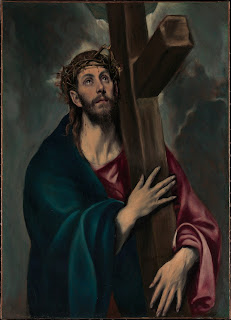“Son of man, do you see that city going bankrupt? Are you willing to see all your cities going bankrupt? Are you willing to see the bankruptcy of the whole economic system you rely on now so that all money is worthless and cannot support you?”
This quote is part of a prophecy given in 1976 (the 200th birthday of America) by Our Lord to Father Michael Scanlan T.O.R., a name many of my Catholic friends would recognize, longtime President of the Franciscan University of Steubenville. (I will post it in its entirety under the pictures below.)
I do find this man credible, and thus I believe this prophecy warrants serious consideration.
This week Congress will begin working on a 1.9 trillion dollar stimulus plan. Spending money we don’t have, printing money out of thin air, deflates the value of our own currency and makes it more prone to being worthless down the road, making our entire economic system worthless, and subject to it and our whole country being taken over by foreign entities. Crushing future generations with unpayable debt is selfish, short-sighted and immoral. No crisis justifies this level of recklessness. Many dollars from previous stimulus plans have not been spent yet. We can figure a way out without resorting to measures like this.
Thwarting the American dream, thwarting the chance of economic growth, stifles human drive, innovation, and the pursuit of excellence. We are more likely to end up like parasites, just living to suck off the breasts of mother government.
If we do go down this road, and our money becomes worthless, and we lose our country as a result, it will be more important than ever as Christians to heed Our Lord’s words to put our trust not in money, not in the government or any political system, but in Him alone. Our faith and hard work may more than ever not be rewarded with earthly treasures. We have to seek heavenly ones.
“Set your minds on things that are above, not on things that are on earth.”
Colossians 3:2
“You cannot serve both God and wealth.”
Luke 16:13
The entire prophecy:
Son of man, do you see that city going bankrupt? Are you willing to see all your cities going bankrupt? Are you willing to see the bankruptcy of the whole economic system you rely on now so that all money is worthless and cannot support you?
Son of man, do you see the crime and lawlessness in your city streets, and towns, and institutions? Are you willing to see no law, no order, no protection for you except that which I myself will give you?
Son of man, do you see the country which you love and which you are now celebrating—a country’s history that you look back on with nostalgia? Are you willing to see no country—no country to call your own except those I give you as my body? Will you let me bring you life in my body and only there?
Son of man, do you see those churches which you can go to so easily now? Are you ready to see them with bars across their doors, with doors nailed shut? Are you ready to base your life only on me and not on any particular structure? Are you ready to depend only on me and not on all the institutions of schools and parishes that you are working so hard to foster?
Son of man, I call you to be ready for that. That is what I am telling you about. The structures are falling and changing—it is not for you to know the details now—but do not rely on them as you have been. I want you to make a deeper commitment to one another. I want you to trust one another, to build an interdependence that is based on my Spirit. It is an interdependence that is no luxury. It is an absolute necessity for those who will base their lives on me and not the structures from a pagan world. I have spoken and it will take place. My word will go forth to my people. They may hear and they may not—and I will respond accordingly—but this is my word.
Look about you, son of man. When you see it all shut down, when you see everything removed which has been taken for granted, and when you are prepared to live without these things, then you will know what I am making ready.




